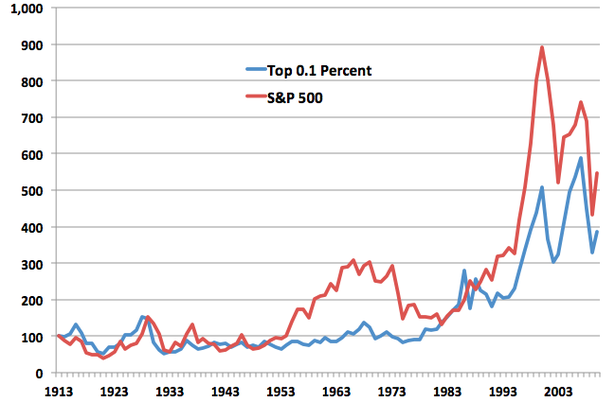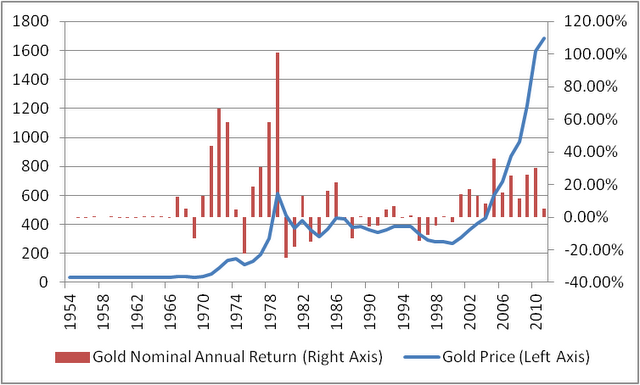Cost capital stock market bubble
A stock market bubble is a type of economic bubble taking place in stock markets when market participants drive stock prices above their value in relation to some system of stock valuation. Behavioral finance theory attributes stock market bubbles to cognitive biases that lead to groupthink and herd behavior.
Bubbles occur not only in real-world markets, with their inherent uncertainty and noise, but also in highly predictable experimental markets. Other theoretical explanations of stock market bubbles have suggested that they are rational, [2] intrinsic, [3] and contagious.
Two famous early stock market bubbles were the Mississippi Scheme in France and the South Sea bubble in England. Both bubbles came to an abrupt end in , bankrupting thousands of unfortunate investors. Those stories, and many others, are recounted in Charles Mackay 's popular account, " Extraordinary Popular Delusions and the Madness of Crowds ". The two most famous bubbles of the twentieth century, the bubble in American stocks in the s just before the Great Depression and the Dot-com bubble of the late s were based on speculative activity surrounding the development of new technologies.
The s saw the widespread introduction of an amazing range of technological innovations including radio , automobiles , aviation and the deployment of electrical power grids. The s was the decade when Internet and e-commerce technologies emerged. Other stock market bubbles of note include the Encilhamento occurred in Brazil during the late s and early s, the Nifty Fifty stocks in the early s, Taiwanese stocks in —89 and Japanese stocks in the late s.
Stock market bubbles frequently produce hot markets in initial public offerings , since investment bankers and their clients see opportunities to float new stock issues at inflated prices. These hot IPO markets misallocate investment funds to areas dictated by speculative trends, rather than to enterprises generating longstanding economic value.
Typically when there is an over abundance of IPOs in a bubble market, a large portion of the IPO companies fail completely, never achieve what is promised to the investors, or can even be vehicles for fraud. Emotional and cognitive biases see behavioral finance seem to be the causes of bubbles, but often, when the phenomenon appears, pundits try to find a rationale, so as not to be against the crowd.
Thus, sometimes, people will dismiss concerns about overpriced markets by citing a new economy where the old stock valuation rules may no longer apply. This type of thinking helps to further propagate the bubble whereby everyone is investing with the intent of finding a greater fool. Still, some analysts cite the wisdom of crowds and say that price movements really do reflect rational expectations of fundamental returns.
Large traders become powerful enough to rock the boat, generating stock market bubbles. To sort out the competing claims between behavioral finance and efficient markets theorists, observers need to find bubbles that occur when a readily available measure of fundamental value is also observable.
The bubble in closed-end country funds in the late s is instructive here, as are the bubbles that occur in experimental asset markets. According to the efficient-market hypothesis , this doesn't happen, and so any data is wrong.

For experimental asset markets, observers can compare the stock prices to the expected returns from holding the stock which the experimenter determines and communicates to the traders. In both instances, closed-end country funds and experimental markets, stock prices clearly diverge from fundamental values. Vernon Smith has illustrated the closed-end country fund phenomenon with a chart showing prices and net asset values of the Spain Fund in and in his work on price bubbles.
At the same time the Spain Fund and other closed-end country funds were trading at very substantial premiums, the number of closed-end country funds available exploded thanks to many issuers creating new country funds and selling the IPOs at high premiums.
It only took a few months for the premiums in closed-end country funds to fade back to the more typical discounts at which closed-end funds trade. Those who had bought them at premiums had run out of "greater fools". For a while, though, the supply of "greater fools" had been outstanding. A rising price on any share will attract the attention of investors. Not all of those investors are willing or interested in studying the intrinsics of the share and for such people the rising price itself is reason enough to invest.
In turn, the additional investment will provide buoyancy to the price, thus completing a positive feedback loop. Like all dynamic systems, financial markets operate in an ever changing equilibrium, which translates into price volatility.
Access to this page has been denied.
However, a self-adjustment negative feedback takes place normally: This puts a limit on volatility. However, once positive feedback takes over, the market, like all systems with positive feedback, enters a state of increasing disequilibrium.
Monetary Policy and Bubbles | Federal Reserve Bank of Minneapolis
This can be seen in financial bubbles where asset prices rapidly spike upwards far beyond what could be considered the rational "economic value", only to fall rapidly afterwards. Investment managers, such as stock mutual fund managers, are compensated and retained in part due to their performance relative to peers.
Taking a conservative or contrarian position as a bubble builds results in performance unfavorable to peers. This may cause customers to go elsewhere and can affect the investment manager's own employment or compensation. The typical short-term focus of U. In attempting to maximize returns for clients and maintain their employment, they may rationally participate in a bubble they believe to be forming, as the risks of not doing so outweigh the benefits.
From Wikipedia, the free encyclopedia. Bond Commodity Derivatives Foreign exchange Money Over-the-counter Private equity Real estate Spot Stock Participants Investor institutional Retail Speculator. Time deposit certificate of deposit. Accounting Audit Capital budgeting. Risk management Financial statement. Structured finance Venture capital. Government spending Final consumption expenditure Operations Redistribution. Central bank Deposit account Fractional-reserve banking Loan Money supply.
Stock Market
Bank regulation Basel Accords International Financial Reporting Standards ISO Professional certification Fund governance Accounting scandals. Private equity and venture capital Recession Stock market bubble Stock market crash. Bradford; Shleifer, Andrei; Summers, Lawrence H. Journal of Political Economy. The Case of Stock Prices".
Effect of Mimetic Contagion". The New York Times. South Sea Company Mississippi Company Canal Mania. Railway Mania Encilhamento "Mounting".

Florida land boom of the s Roaring Twenties stock-market bubble Poseidon bubble Japanese asset price bubble Asian financial crisis Dot-com bubble.
Chinese stock bubble of Uranium bubble of Australian property bubble Bulgarian property bubble Chinese property bubble —11 Danish property bubble of s Indian property bubble Irish property bubble Lebanese housing bubble Polish property bubble Romanian property bubble Spanish property bubble United States housing bubble causes.
Carbon bubble Chaotic bubble Higher education bubble Social media bubble. AI winter Stock market bubble Commodity booms. Retrieved from " https: Behavioral finance Economic bubbles Market trends Stock market. Pages using ISBN magic links. Navigation menu Personal tools Not logged in Talk Contributions Create account Log in. Views Read Edit View history. Navigation Main page Contents Featured content Current events Random article Donate to Wikipedia Wikipedia store. Interaction Help About Wikipedia Community portal Recent changes Contact page.
Cost Of Equity
Tools What links here Related changes Upload file Special pages Permanent link Page information Wikidata item Cite this page. In other projects Wikimedia Commons.
This page was last edited on 20 March , at Text is available under the Creative Commons Attribution-ShareAlike License ; additional terms may apply. By using this site, you agree to the Terms of Use and Privacy Policy. Privacy policy About Wikipedia Disclaimers Contact Wikipedia Developers Cookie statement Mobile view. Markets Bond Commodity Derivatives Foreign exchange Money Over-the-counter Private equity Real estate Spot Stock.
Investor institutional Retail Speculator. Corporate Accounting Audit Capital budgeting Credit rating agency Risk management Financial statement Leveraged buyout Mergers and acquisitions Structured finance Venture capital.
Public Government spending Final consumption expenditure Operations Redistribution Transfer payment.

Banks and banking Central bank Deposit account Fractional-reserve banking Loan Money supply Lists of banks. Economic history Private equity and venture capital Recession Stock market bubble Stock market crash.